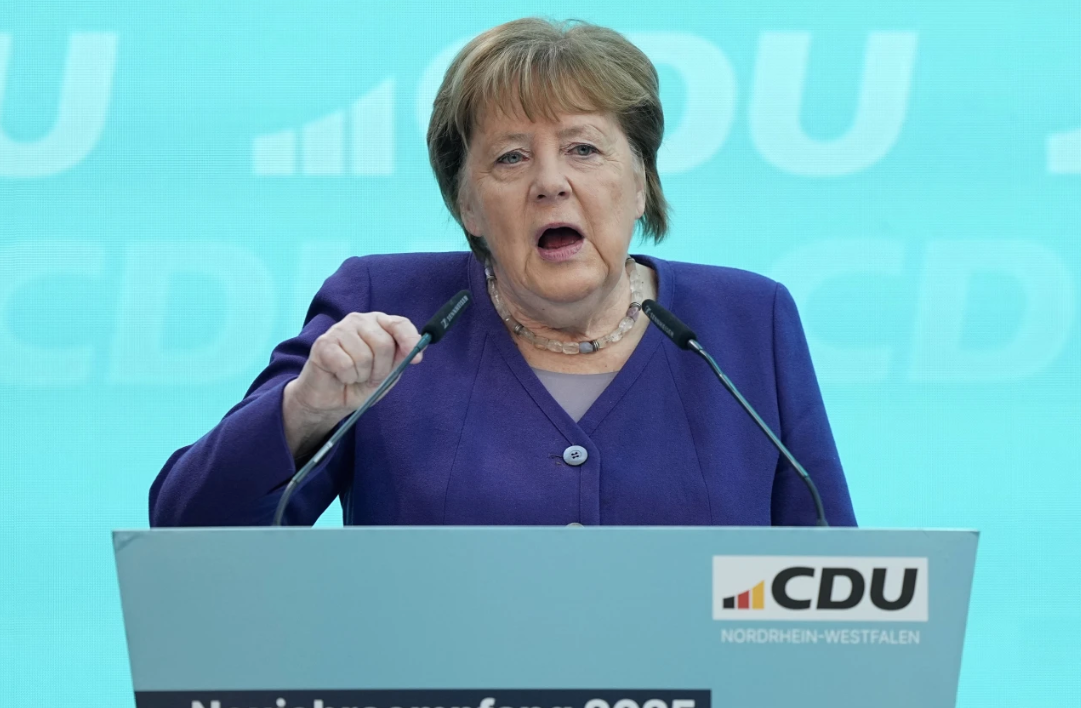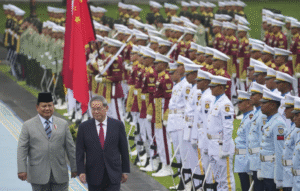Former German Chancellor Angela Merkel publicly criticized her successor, Friedrich Merz, for pushing migration proposals through parliament with the support of the far-right Alternative for Germany (AfD) party. This criticism is notable as Merkel has rarely commented on the actions of her successor.
Merz, the leader of Germany’s center-right opposition, put forward a proposal aimed at tightening migration rules, following a deadly knife attack by a rejected asylum-seeker. His motion called for stronger measures to turn back more migrants at the border. However, the proposal passed with the help of AfD votes, prompting concerns from Germany’s center-left governing parties.
Merkel’s criticism comes as Chancellor Olaf Scholz expressed his disapproval of Merz’s decision, calling it an “inexcusable mistake” that potentially undermined a longstanding political consensus, known as the “firewall,” which keeps far-right parties at bay. Merz, on the other hand, denied any intention of working with the AfD and insisted that his actions did not breach the political consensus.
Polls indicate that Friedrich Merz’s Union bloc is leading ahead of Germany’s February 23 election, with around 30% of voter support. The far-right Alternative for Germany (AfD) is in second place with approximately 20%, while Chancellor Olaf Scholz’s center-left Social Democrats, along with their coalition partners the Greens, are trailing behind.
In a rare public statement, former Chancellor Angela Merkel, who once led the Christian Democratic Union (CDU) alongside Friedrich Merz, criticized him for allowing the far-right Alternative for Germany (AfD) to help pass a motion in parliament. Merkel reminded that Merz had previously stated in November that no legislation should be approved with AfD’s support before the February 23 election. She expressed her support for that stance but argued that it was wrong for Merz to abandon this commitment, particularly when, on January 29, AfD votes were used to secure a parliamentary majority for a motion. Merkel emphasized that all democratic parties must collaborate—not just as a political strategy, but in adherence to European Union laws—to prevent attacks like the one last week, where the suspect was an immigrant.
Friedrich Merz took over leadership of the CDU after Angela Merkel stepped down as chancellor in 2021. A more conservative figure, Merz has adopted a tougher stance on migration, criticizing Germany’s asylum and immigration policies, which he claims have been misguided for the past decade since Merkel allowed large numbers of migrants into the country.
While Merkel has largely stayed out of the political spotlight since leaving office and is no longer actively influencing her party, her rare public comment on Merz’s recent actions could pose a challenge for him. Merz appears to be seeking support by portraying the CDU as firm in its approach to migration, hoping to diminish the appeal of the anti-immigration AfD while painting Chancellor Olaf Scholz and the Greens as weak. However, it’s unclear whether this strategy will succeed.
After the vote on January 29, AfD lawmakers celebrated, while others were more solemn. Merz explained that he had aimed to secure a majority from the “democratic center” but acknowledged that it didn’t work out. Despite this, he maintained that a “correct decision” doesn’t become wrong just because it is backed by the wrong people.
On Friday, the Union plans to hold a vote on proposed legislation that aims to end family reunifications for migrants with a protection status that doesn’t meet the asylum criteria. This measure could potentially pass with support from the AfD, but it would still need approval from the upper house of parliament, making its passage uncertain.
The events of this week have created a tense political atmosphere, which could complicate coalition-building efforts after the upcoming election. If the Union does not secure a majority, Merz may need to rely on center-left parties to form a government.
Wolfgang Schroeder, a political science professor at the Berlin Social Science Center, described the events as a “breach of the informal firewall” and a “toxic intervention” by Merz and the CDU. While he acknowledged that these actions might benefit the Union in the short term, he cautioned that they could have negative consequences in the long run. Schroeder also noted that while the parliamentary developments are significant, they should not be overstated as an “epochal, historic moment.”













